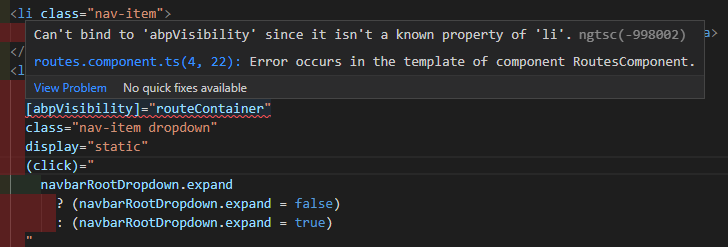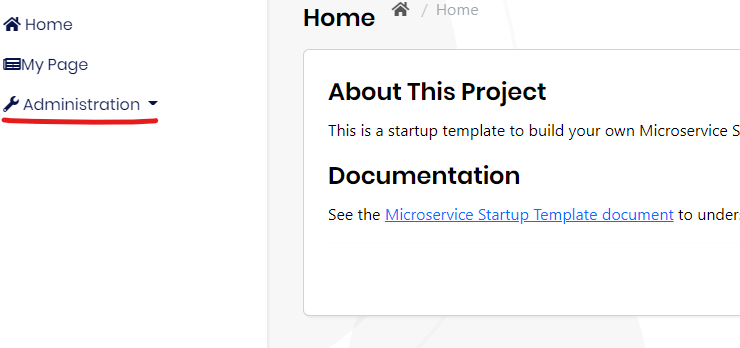Anybody is there? Need proper documentation on multi-tenancy domain resolver on microservice architecture
I have microservice architecture and I followed the multi-tenancy domain resolver document but it's not working in a microservice architecture. Can you please provide some documentation to integrate multi-tenancy domain resolver in a microservice architecture? I have following question.
Configure<AbpTenantResolveOptions>(options =>
{
options.AddDomainTenantResolver("{0}.api.getabp.net:44367");
});
{
"ServiceKey": "Account Service",
"DownstreamPathTemplate": "/api/account/{everything}",
"DownstreamScheme": "https",
"DownstreamHostAndPorts": [
{
"Host": "{0}.api.getabp.net", // host name change here
"Port": 44322
}
],
"UpstreamPathTemplate": "/api/account/{everything}",
"UpstreamHttpMethod": [ "Put", "Delete", "Get", "Post" ]
}
`
How do I get all logged in users? I want to display the name of all logged in users on the page. If users logged out and or new users logged in the list should refresh. I will use the SignalR but I want the events where I can get the logged in or logged out event of users.
I am following https://docs.abp.io/en/abp/latest/UI/Angular/Component-Replacement document to replace the route's component and create custom routes as per our requirements. But as per the documents, the html is binding only two routes of the administration menu. I want to bind the custom routes as per the route providers that I have configured and the route providers of administration and SaaS menu based on permission.
I am also getting the following error in routes.component.html.

Also, I noticed that the administration menu is not expanding and CSS is not proper.

I want the custom routes the same as the in-built route's component so I can customize a little bit on component html.
I have microservice architecture and I have integrated the NgxsRouterPluginModule in Angular project and injected into app.module.ts. To reproduce the issue, you can follow below changes.
Install the NgxsRouterPluginModule
"@ngxs/router-plugin": "^3.7.4",
Change the environment configuration to use the account module login UI.
const oAuthConfig = { issuer: 'https://localhost:44322', clientId: 'App_Angular', scope: 'offline_access openid profile email phone', requireHttps: true, };
Inject the NgxsRouterPluginModule in app.module.ts
..... NgxsRouterPluginModule.forRoot(), NgxsLoggerPluginModule.forRoot(), NgxsReduxDevtoolsPluginModule.forRoot(), ],
With the above configuration, the login page won't work and you will get the below error in the console.
vendor.js:69956 ERROR TypeError: Cannot read properties of undefined (reading 'isEnabled') at get isEnabled [as isEnabled] (node_modules_volo_abp_ng_account_fesm2015_volo-abp_ng_account-public_mjs.js:5560:30) at vendor.js:9296:14 at Array.forEach (<anonymous>) at deepFreeze (vendor.js:9289:35) at vendor.js:9299:13 at Array.forEach (<anonymous>) at deepFreeze (vendor.js:9289:35) at vendor.js:9299:13 at Array.forEach (<anonymous>) at deepFreeze (vendor.js:9289:35)
vendor.js:69956 ERROR TypeError: Cannot read properties of undefined (reading 'isEnabled') at get isEnabled [as isEnabled] (node_modules_volo_abp_ng_account_fesm2015_volo-abp_ng_account-public_mjs.js:5560:30) at vendor.js:9296:14 at Array.forEach (<anonymous>) at deepFreeze (vendor.js:9289:35) at vendor.js:9299:13 at Array.forEach (<anonymous>) at deepFreeze (vendor.js:9289:35) at vendor.js:9299:13 at Array.forEach (<anonymous>) at deepFreeze (vendor.js:9289:35)I want to create the custom definition provider as per our project requirement. I have a microservice architecture and I have one module to register the services from different microservices. I have checked the SettingDefinitionProvider, and PermissionDefinitionProvider, the same way, I want to create the ServiceDefinationProvider with the group name and key value so I can register the definitions in all microservices and can use the Key to identify the registered service. Is there any way to create the custom definition provider and get all the definitions through the api-definitions endpoint?
The issue is fixed.
I have configured new microservices and deployed them on Kubernetes. I am getting the following error. It's working fine in local.
Logs
[11:48:57 INF] Request starting HTTP/1.1 GET http://product-service-v1.mydomain.com/ - - [11:48:57 ERR] Connection id "0HMI4HCOL9UUN", Request id "0HMI4HCOL9UUN:00000003": An unhandled exception was thrown by the application. System.InvalidOperationException: Unable to resolve service for type 'Swashbuckle.AspNetCore.Swagger.ISwaggerProvider' while attempting to Invoke middleware 'Swashbuckle.AspNetCore.Swagger.SwaggerMiddleware'. at Microsoft.AspNetCore.Builder.UseMiddlewareExtensions.GetService(IServiceProvider sp, Type type, Type middleware) at lambda_method880(Closure , Object , HttpContext , IServiceProvider ) at Microsoft.AspNetCore.Builder.UseMiddlewareExtensions.<>c__DisplayClass5_1.<UseMiddleware>b__2(HttpContext context) at Microsoft.AspNetCore.Authorization.AuthorizationMiddleware.Invoke(HttpContext context) at Volo.Abp.AspNetCore.MultiTenancy.MultiTenancyMiddleware.InvokeAsync(HttpContext context, RequestDelegate next) at Microsoft.AspNetCore.Builder.UseMiddlewareExtensions.<>c__DisplayClass6_1.<<UseMiddlewareInterface>b__1>d.MoveNext() --- End of stack trace from previous location --- at Volo.Abp.AspNetCore.Security.Claims.AbpClaimsMapMiddleware.InvokeAsync(HttpContext context, RequestDelegate next) at Microsoft.AspNetCore.Builder.UseMiddlewareExtensions.<>c__DisplayClass6_1.<<UseMiddlewareInterface>b__1>d.MoveNext() --- End of stack trace from previous location --- at Microsoft.AspNetCore.Authentication.AuthenticationMiddleware.Invoke(HttpContext context) at Microsoft.AspNetCore.Localization.RequestLocalizationMiddleware.Invoke(HttpContext context) at Microsoft.AspNetCore.RequestLocalization.AbpRequestLocalizationMiddleware.InvokeAsync(HttpContext context, RequestDelegate next) at Microsoft.AspNetCore.Builder.UseMiddlewareExtensions.<>c__DisplayClass6_1.<<UseMiddlewareInterface>b__1>d.MoveNext() --- End of stack trace from previous location --- at Volo.Abp.AspNetCore.Tracing.AbpCorrelationIdMiddleware.InvokeAsync(HttpContext context, RequestDelegate next) at Microsoft.AspNetCore.Builder.UseMiddlewareExtensions.<>c__DisplayClass6_1.<<UseMiddlewareInterface>b__1>d.MoveNext() --- End of stack trace from previous location --- at Microsoft.AspNetCore.Server.Kestrel.Core.Internal.Http.HttpProtocol.ProcessRequests[TContext](IHttpApplication`1 application) [11:48:57 INF] Request finished HTTP/1.1 GET http://product-service-v1.mydomain.com/ - - - 500 0 - 2.9439ms
When I restore the projects, I am getting the following error.
Build started... Retrying 'FindPackagesByIdAsync' for source 'https://nuget.abp.io/{key}/v3/package/microsoft.extensions.fileproviders.embedded/index.json'. Response status code does not indicate success: 500 (Internal Server Error). Retrying 'FindPackagesByIdAsync' for source 'https://nuget.abp.io/{key}/v3/package/microsoft.extensions.fileproviders.embedded/index.json'. Response status code does not indicate success: 500 (Internal Server Error). NuGet package restore failed. Please see Error List window for detailed warnings and errors. Error occurred while restoring NuGet packages: Failed to retrieve information about 'Microsoft.Extensions.FileProviders.Embedded' from remote source 'https://nuget.abp.io/{key}/v3/package/microsoft.extensions.fileproviders.embedded/index.json'.
The above issue is fixed. Thanks for your support.

